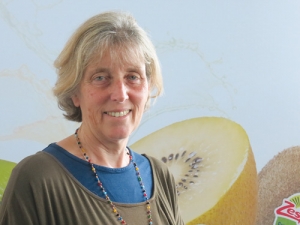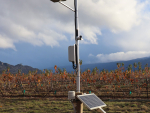Health ranks as one of the top three attributes of kiwifruit says Dr Juliet Ansell, a health and nutrition expert with Zespri.
She says when kiwifruit enter a new market the need is to establish the brand and tell consumers about the product. When consumers know about it they quickly latch onto the health properties it offers.
"Our research shows that taste and quality, health and convenience are the top three attributes in almost every market. And though the order will often change in a particular market, health is always there – even in undeveloped markets."
Ansell, a scientist, says having good science to back up health claims is essential. She won't give any information to the Zespri marketing team unless it has scientific backing via peer reviewed studies or accepted health claims.
The challenge for scientists, her included, is to present that science in a way that is relevant and meaningful to consumers.
"It's so hard. I'll explain something that to me is perfectly understandable, but when my colleagues ask 'what does that mean?' I have to think carefully about what I'm saying."
Ansell believes the means of getting the message across will vary from country to country. In Asia, for example, often a mascot is used as part of the messaging process.
Meanwhile, a NZ health researcher says more needs to be done here to get the message across to consumers about the health benefits of kiwifruit.
Professor Margreet Visser says many people in NZ don't know how good kiwifruit is for them and no one has taken responsibility for telling them. "The benefits of kiwifruit are huge. Parents need to be told how good it is for them and their children. And it's easily available in NZ and cheap."



















